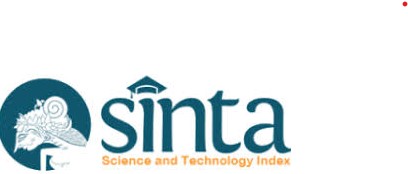Jurnal The Messenger
Identitas Jurnal
- Judul Terbitan Jurnal The Messenger
- Sub Judul
- Nama Institusi Universitas Semarang
- Jenis Jurnal Penelitian
- Akreditasi Jurnal Nasional Terakreditasi Sinta 2
- Terbitan 4x Setahun (Januari, April, Juli, Oktober)
- Bidang Ilmu Linguistics, Language, Communication and Media
- P-ISSN 2086-1559
- E-ISSN 2527-2810
- Biaya APC Rp 2.300.000
- Artikel Per Tahun 20 Artikel
- Lama Waktu Terbit 60 Hari
- Prosentase Penerimaan 20%
-
Indeksasi




Deskripsi
[Jurnal The Messenger] is a peer-reviewed journal, published by the Department of Communication, Faculty of Information Technology and Communication, Universitas Semarang. Articles published are the results of research done on communication field, bringing the new sights on Cultural Studies, Integrated Marketing Communication, and Media. Starting from 2021, [Jurnal The Messenger] will publish three times (Regular Issues) a year (January-April, May-August, and September-December). It was first published in 2009.
Article indexed DOI
Jurnal The Messenger
DOI : 10.26623/themessenger.v15i3.9048 - Volume: 15, Issue: 3, Sitasi : 0
01-Jan-2025 | Abstrak | PDF File | Resource | Last.09-Jul-2025
DOI : 10.26623/themessenger.v15i3.7434 - Volume: 15, Issue: 3, Sitasi : 0
01-Jan-2025 | Abstrak | PDF File | Resource | Last.09-Jul-2025
DOI : 10.26623/themessenger.v15i2.5965 - Volume: 15, Issue: 2, Sitasi : 0
27-Dec-2024 | Abstrak | PDF File | Resource | Last.09-Jul-2025
DOI : 10.26623/themessenger.v16i2.6427 - Volume: 16, Issue: 2, Sitasi : 0
03-Jan-2025 | Abstrak | PDF File | Resource | Last.09-Jul-2025
DOI : 10.26623/themessenger.v15i1.4473 - Volume: 15, Issue: 1, Sitasi : 0
17-Dec-2024 | Abstrak | PDF File | Resource | Last.09-Jul-2025
DOI : 10.26623/themessenger.v16i2.7317 - Volume: 16, Issue: 2, Sitasi : 0
02-Jan-2025 | Abstrak | PDF File | Resource | Last.09-Jul-2025
DOI : 10.26623/themessenger.v16i3.5781 - Volume: 16, Issue: 3, Sitasi : 0
11-Jan-2025 | Abstrak | PDF File | Resource | Last.09-Jul-2025
DOI : 10.26623/themessenger.v14i3.2788 - Volume: 14, Issue: 3, Sitasi : 0
30-May-2024 | Abstrak | PDF File | Resource | Last.09-Jul-2025
DOI : 10.26623/themessenger.v14i3.2635 - Volume: 14, Issue: 3, Sitasi : 0
30-May-2024 | Abstrak | PDF File | Resource | Last.09-Jul-2025
DOI : 10.26623/themessenger.v14i3.5190 - Volume: 14, Issue: 3, Sitasi : 0
06-May-2024 | Abstrak | PDF File | Resource | Last.09-Jul-2025
Artikel PerTahun
Artikel PerVolume
Sitasi Per Tahun
Tahun 2025, Volume.17, Issue.1 (6)
Tahun 2025, Volume.15, Issue.1 (1)
Tahun 2025, Volume.16, Issue.3 (5)
Tahun 2025, Volume.16, Issue.2 (5)
Tahun 2025, Volume.15, Issue.3 (4)
Tahun 2024, Volume.16, Issue.1 (5)
Tahun 2024, Volume.15, Issue.2 (5)
Tahun 2024, Volume.15, Issue.3 (1)
Tahun 2024, Volume.15, Issue.1 (4)
Tahun 2024, Volume.14, Issue.3 (5)
Tahun 2024, Volume.14, Issue.2 (5)
Tahun 2023, Volume.14, Issue.1 (5)
